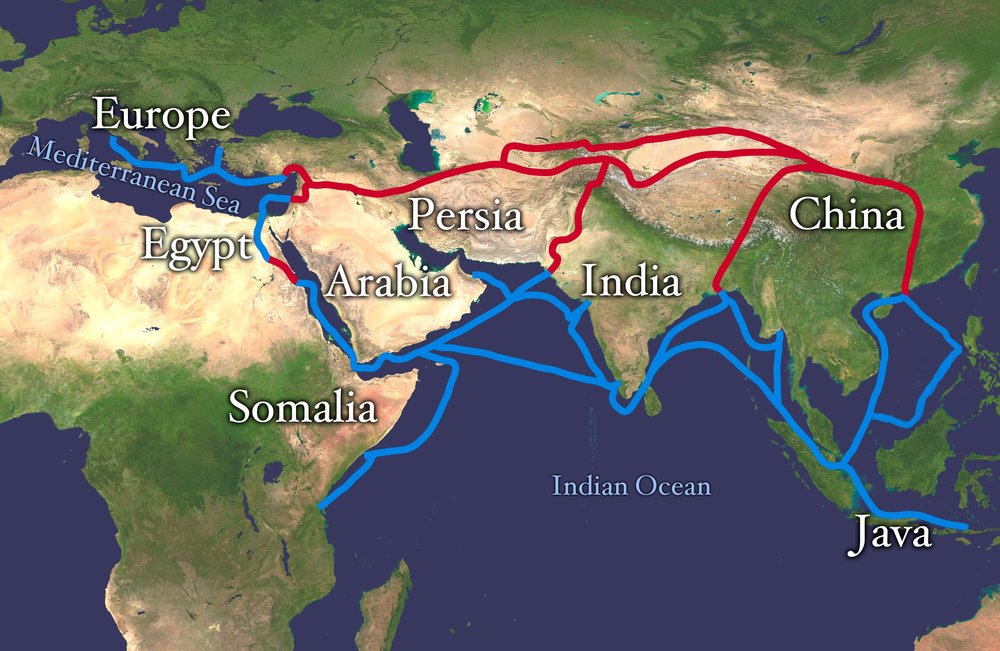Iran is a ‘vital link’ on Silk Road: expert

TEHRAN - Gautam Adhikari, a senior fellow at the Center for American Progress in Washington DC, tells the Tehran Times that Iran is “a vital link” on Chia’s new Silk Road initiative, also known as “One Belt, One Road” program.
Under the program, announced by President Xi Jinping in 2013, China aims to invest in infrastructure projects including railways and power grids in Central, West and Southern Asia, as well as Africa and Europe.
Adhikari, who also served as a senior consultant of the World Bank, says Iran’s “strategic location and its capacity to supply oil and gas to China are important reasons why Iran is a key point of the OBOR.”
Following is the full text of the interview:
Q: China is trying to revive the Silk Road. Why?
A: The Silk Road project is a key part of China's ambition to make itself a leader in the world. China wants to create close ties with Asia, Europe, the Middle East as well as Africa. The Silk Road is really two 'roads'. The Chinese have named the initiative "One Belt, One Road' or OBOR. The 'belt' refers to a land route linking China with Europe through Central Asia and the Middle East and this section in a loose sense runs along the lines of the Silk Road of medieval times. The 'road' part is actually a maritime route that would extend from China's ports through East Asian ports, and the Indian Ocean to Africa and southern European nations. Together, the initiative is called the Silk Road strategy, which aims to make China a global powerhouse. The initiative will also provide outlets for surplus Chinese manufactured products, like steel of which there is a glut in China, through large scale infrastructure projects in various countries.
China has actively invited countries in Asia, Africa and Europe to become partners in OBOR and many countries have already done so. OBOR, if successfully implemented and after it becomes fully operational, can expand China's global influence enormously to pose a challenge to the current Western liberal world order. But many countries in Asia, India and Vietnam among them, view the initiative with suspicion though publicly most Asian nations want a slice of the pie. Interestingly, the initiative leaves out Japan and South Korea, two of the world's largest economies. With the future of the Trans Pacific Partnership in the balance because of internal politics in the U.S., the regional leverage that OBOR can potentially provide China must be taken into account.
“China plans to build high-speed rail links to Iran. It will, of course, further boost Iran-China trade but it can also help Iran's importance as a hub between Europe and China.”
One other regional nation that will gain and is already benefiting hugely from the OBOR project is Pakistan. China already has a 'corridor' initiative with Pakistan and Beijing helps Islamabad crucially with economic and military-related support. This has significance for neighboring Iran as well as India.
Q: What can be the importance of Iran in this project?
A: Iran is a vital link on the Belt. Its strategic location and its capacity to supply oil and gas to China are important reasons why Iran is a key point of the OBOR. A train line is now operational between Chain's east coast and Tehran. It has slashed time between Shanghai and Tehran to just two weeks compared to the 45 days it takes for goods to be ferried by sea between Shanghai and Bandar Abbas.
Ironically, the partial lifting of sanctions on Iran following the nuclear agreement with the U.S. seems to be helping Iran-China economic cooperation; EU nations are still somewhat wary of vigorously expanding economic ties with Iran but China is not. China's economic cooperation with Iran expanded during the sanctions era with bilateral trade between the two nations growing from $4 billion in 2003 to well over $50 billion in 2013.
Q: What is the European Union’s view toward efforts being made by China to revive the Silk Road? Does the EU consider it a threat to itself?
A: This is difficult to surmise at this point. I would speculate that the EU attitude towards the Silk Road is simultaneously a desire to benefit from the economic bonanza that such a link can provide in Central Asian and Chinese markets, and an uneasy apprehension about the long term implications of what would clearly be a vast expansion of China's economic might and global influence at, many fear, the expense of existing global institutions and the international order which the West has supervised for the last 70 years.
Q: Can this road result in an improvement of Iran-EU relations?
A: China plans to build high-speed rail links to Iran. It will, of course, further boost Iran-China trade but it can also help Iran's importance as a hub between Europe and China. Not only can it generate income for Iran, it can help the country develop closer ties with the economies of East Asia, Central Asia and Europe. But, I would caution, these are mere possibilities on which we can base cautious assumptions. We'll have to wait to see how exactly OBOR turns out in practice, to say nothing of the watchful anxiety the initiative generates in the region as well as in the United States, Europe, and East Asia.
JH/PA
